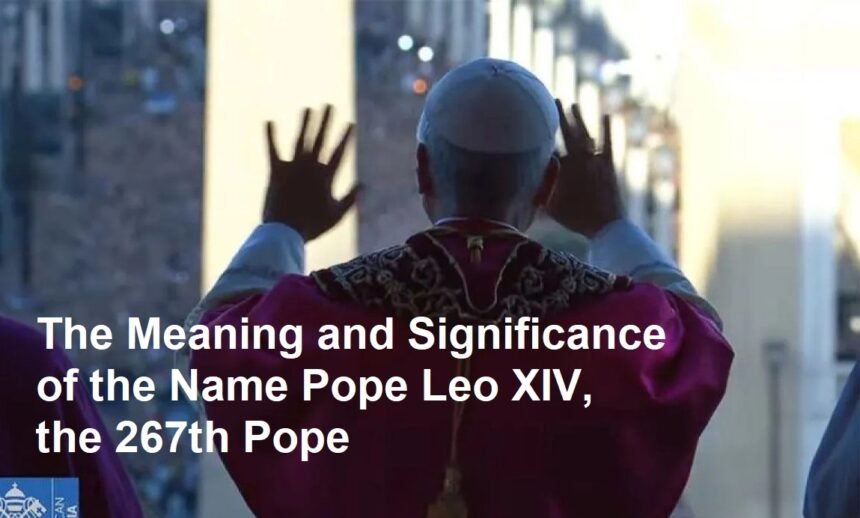The papal name “Leo” carries a rich history and deep symbolism within the Catholic Church, and the hypothetical election of Pope Leo XIV as the 267th pope continues this venerable tradition. To understand the meaning behind the name “Leo XIV,” it is essential to explore the origins of the name, its historical significance in the papacy, and the implications of adopting this name in the context of the Church’s leadership.
The Origin and Symbolism of the Name “Leo”
The name “Leo” is derived from the Latin word for “lion.” The lion has long been a powerful symbol across cultures, representing courage, strength, leadership, and nobility. In Christian symbolism, the lion is often associated with Saint Mark the Evangelist and is emblematic of Christ’s majesty and power. By choosing the name “Leo,” a pope aligns himself with these qualities, signaling a commitment to courageous leadership and spiritual strength.
Historical Usage of the Name “Leo” in the Papacy
The name Leo has been chosen by thirteen previous popes, making “Leo XIV” the fourteenth to adopt this name. The tradition of papal names is significant because each pope selects a name that reflects his vision, mission, or homage to a predecessor whose legacy he wishes to honor or emulate.
Among the most notable Popes named Leo are:
- Pope Leo I (the Great) (440–461): Perhaps the most famous bearer of the name, Leo I was instrumental in defining the doctrine of the Church during the Council of Chalcedon in 451. He is credited with persuading Attila the Hun to spare Rome from invasion, demonstrating both spiritual and diplomatic strength. His papacy set a precedent for the authority of the Bishop of Rome.
- Pope Leo III (795–816): Known for crowning Charlemagne as Holy Roman Emperor in 800 AD, Leo III’s papacy marked a pivotal moment in the relationship between the Church and European political power. This act symbolized the fusion of religious and secular authority and the Church’s role in shaping Western civilization.
- Pope Leo IX (1049–1054): A reformer pope, Leo IX worked to address corruption within the Church and was a key figure in the events leading up to the Great Schism between the Western and Eastern Churches.
Each Pope Leo has left a distinct mark on Church history, often associated with reform, strength, and the defense of the faith. By choosing the name Leo XIV, a new pope would be signaling a desire to continue this legacy of strong, principled leadership.
Clarifying the Numbering: 267th Pope and Leo XIV
The numbering “267th pope” refers to the chronological order of all popes since Saint Peter, traditionally considered the first pope. The number “XIV” (14) after Leo indicates that this pope is the fourteenth to take the name Leo, not the fourteenth pope overall.
Thus, Pope Leo XIV would be the 267th pope in total but the fourteenth pope to bear the name Leo. This distinction is important because papal names are reused over centuries, and the numbering after the name reflects the sequence of that particular name’s usage.
The Significance of Choosing the Name Leo XIV Today
In a contemporary context, a pope choosing the name Leo XIV would be making a statement about his intended papacy. Given the historical associations with the name Leo—courage, reform, defense of the Church’s doctrine, and engagement with political and social challenges—the new pope might be signaling a commitment to strong leadership amid modern challenges facing the Church.
This could include addressing issues such as social justice, interfaith dialogue, global peace, and the Church’s role in a rapidly changing world. The name Leo XIV would evoke a connection to the past while emphasizing a forward-looking vision grounded in strength and moral clarity.
Conclusion
The name Pope Leo XIV, as the 267th pope, carries profound historical and symbolic weight. Rooted in the Latin word for “lion,” it embodies courage, leadership, and spiritual authority. The legacy of previous Popes Leo—especially Leo I, Leo III, and Leo IX—provides a rich backdrop of reform, diplomacy, and doctrinal defense that the new pope would be expected to uphold.
By adopting the name Leo XIV, the pope aligns himself with a tradition of strong, principled leadership, signaling to the global Catholic community a commitment to guiding the Church through contemporary challenges with the same vigor and wisdom as his predecessors. This name choice is not merely a title but a declaration of intent, linking the past’s enduring legacy with the future’s hopeful promise.









